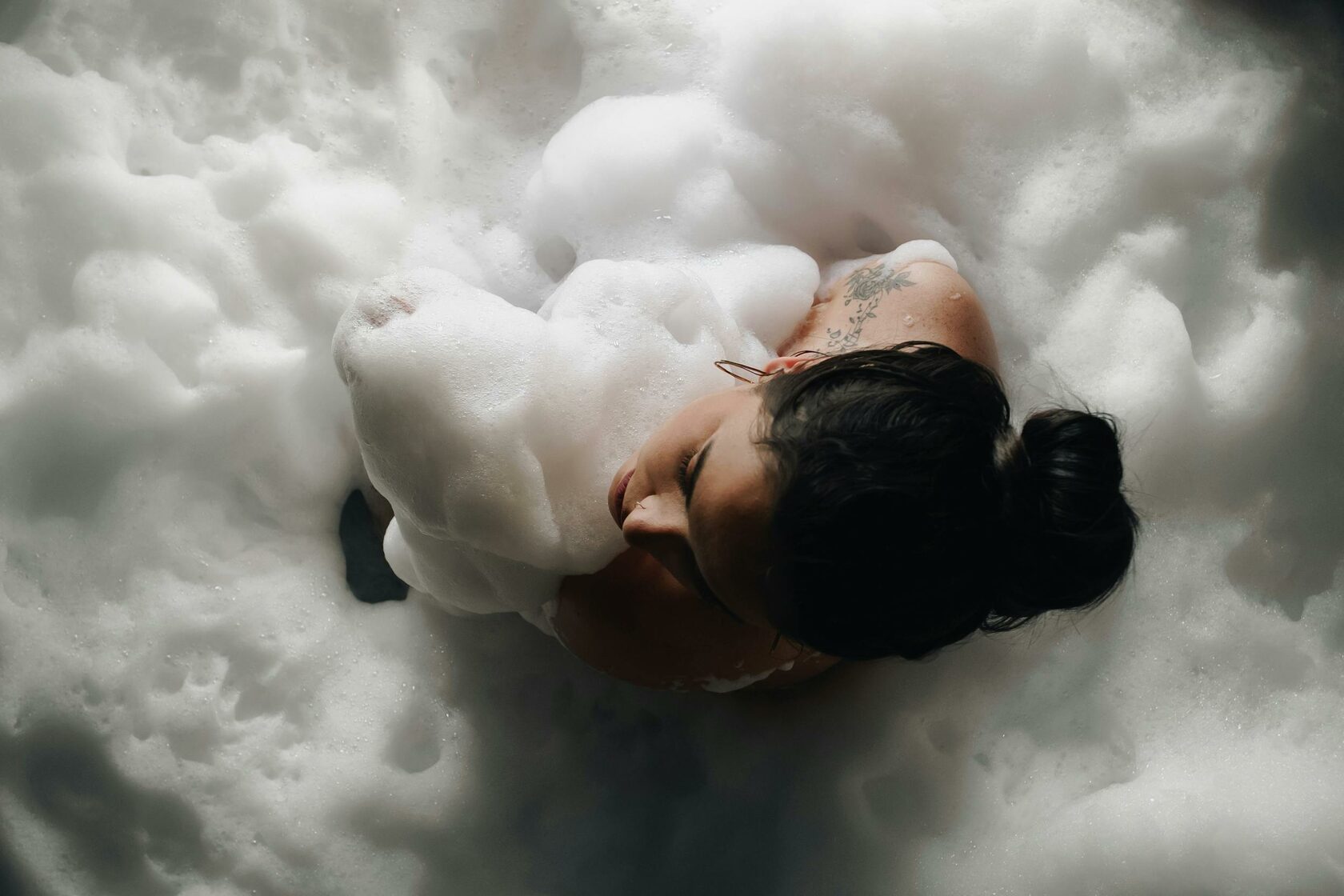We’ve all heard that unprotected sex is bad for you. But what does unprotected sex really mean? And why exactly is it so bad? Let’s find out with Flure.

What is unprotected sex
Unprotected, or raw sex is any form of sex (vaginal, oral, anal) that happened without a condom. To be considered protected and safe, sex must be accompanied by a barrier (a.k.a. a condom or a dental dam) to prevent sexually transmitted infections (STIs).
Contrary to popular belief, having vasectomy, taking birth control pills or the pull-out method are not safe. The pill only prevents unwanted pregnancy, but you can still catch an infection. Same with a vasectomy. As for the pull-out method, it is deeply controversial because there is still a chance of pregnancy, plus you’re not protected against the diseases either.
The risks and dangers of unprotected sex

Unprotected sex is really not a good idea, especially if you’re not in a committed relationship where your goals align and health is a priority to everyone.
Pregnancy
If you have a vulva and are of your childbearing age, there is a relatively high risk of getting pregnant while having unprotected sex. If you’re taking a pill or use other forms of contraception, then, technically, you are on a safer side. However, there are many cases when the contraceptives fail, and pregnancy occurs.
So, if you reeeeally don’t want to have a child right now, or it’s off-limits for medical reasons, we’d strongly recommend you to go with a condom just in case. Or other suitable contraception methods, recommended by your doctor. You might even want to consider not having sex at all, if you are worried that you can get pregnant.
STIs
We’ve briefly touched on STIs earlier in this article, but it’s an extremely serious issue, so it’s worth mentioning again.
Sexually transmitted infections (STIs) are infections transmitted through sexual contact, including vaginal, anal, or oral sex. Some STIs can be asymptomatic, but many present noticeable signs that shouldn’t be ignored. Early detection and treatment are crucial to prevent complications and the spread to others. Here are the most common STIs and associated symptoms.
Chlamydia
Gonorrhea
Genital herpes
Human papillomavirus (HPV)
Syphilis
HIV/AIDS
Trichomoniasis
Hepatitis B
Mycoplasma genitalium
- Symptoms: Unusual discharge, painful urination, lower abdominal pain.
Gonorrhea
- Symptoms: Green/yellow discharge, pain during urination, rectal discomfort.
Genital herpes
- Symptoms: Painful blisters, itching, flu-like symptoms during outbreaks.
Human papillomavirus (HPV)
- Symptoms: Genital warts, often asymptomatic for high-risk strains.
Syphilis
- Symptoms: Painless sores, body rash, severe complications if untreated.
HIV/AIDS
- Symptoms: Flu-like symptoms, swollen lymph nodes, weight loss in later stages.
Trichomoniasis
- Symptoms: Vaginal discharge with odor, genital itching, pain during urination.
Hepatitis B
- Symptoms: Jaundice, fatigue, abdominal pain.
Mycoplasma genitalium
- Symptoms: Painful urination, abnormal discharge, cervical irritation.
General symptoms to watch for:
If you notice any of these symptoms, consult a healthcare provider and consider regular STI screenings.
- Unusual discharge from the penis or vagina
- Sores, blisters, or warts in the genital or oral areas
- Painful/frequent urination
- Itching, redness, or discomfort in the genital area
- Abdominal pain or flu-like symptoms
If you notice any of these symptoms, consult a healthcare provider and consider regular STI screenings.
Tip: If it turns out you both have no condoms on your hands, there’s no reason to end the night early. There’s always an option to masturbate one another! Just use your hands or dental dams, because some infections, such as Hepatitis B and C can be transmitted through bodily fluids too.
What should I do after having unprotected sex?

Unprotected sex can leave you feeling uncertain, but taking immediate steps can help protect your health and prevent unwanted outcomes. Here’s a timeline of what to do after unprotected sex to address potential risks and stay proactive about your well-being.
First 30 minutes
- Pee: Urinating after sex can help flush out bacteria from the urethra, reducing the risk of urinary tract infections (UTIs).
- Wash up: Gently wash your genital area with warm water (no harsh soaps) to remove any external fluids. This helps reduce irritation and lowers the risk of infection.
- Check for tears or injuries: Inspect for any cuts, tears, or soreness, which can increase the risk of sexually transmitted infections (STIs). If you notice any, consider reaching out to a healthcare provider.
First 3 days
- Emergency contraception: If pregnancy is a concern, take emergency contraception (e.g., Plan B or a similar option) within 72 hours. For best results, act as soon as possible. Consult a doctor or pharmacist for advice and suitability based on your health and cycle.
- Clean your sex toys: If sex toys were used, clean them thoroughly with appropriate disinfectants to prevent infections or reinfections.
- Consult an Expert: If you’re worried about STIs or pregnancy, speak to a healthcare provider. They can guide you on tests, treatments, and further preventive measures.
First week
- Consider a copper intrauterine device (IUD): A copper IUD can be inserted up to 5 days after unprotected sex as emergency contraception. It is highly effective at preventing pregnancy and provides long-term protection. Consult a healthcare professional to see if this option is suitable for you.
- Watch for Symptoms: Stay alert for symptoms of STIs, such as unusual discharge, itching, or sores. Early detection is crucial for effective treatment.
One month after
- Take a pregnancy test: If you suspect pregnancy, take a test about 3–4 weeks after unprotected sex. Testing earlier may not give accurate results. Follow up with a doctor if the test is positive or if you have concerns.
- Get tested for STIs: Some STIs may not show symptoms immediately. A month after unprotected sex is a good time for a comprehensive STI screening, especially if you’ve had multiple partners or suspect exposure.
Pro tip: Staying calm and taking these steps promptly can make a significant difference in managing potential risks. Regular checkups, safe sex practices, and open communication with partners are key to sexual health.
How to have safe(r) sex?
No sexual activity is completely risk-free, but taking precautions can significantly reduce the chances of sexually transmitted infections (STIs) and unintended pregnancies. Safer sex is about being informed, prepared, and mindful of your health and your partner’s. Here are five practical tips to keep in mind:
Tip #1: Use condoms consistently and correctly
Condoms, both male and female varieties, are one of the most effective ways to protect against STIs and unintended pregnancies. Use a new condom for every sexual encounter, and ensure it’s put on properly to avoid breakage or slippage.
Tip #2: Get regular STI testing
Frequent testing ensures you and your partner are aware of your sexual health status. It’s especially important if you have multiple partners or are in a new relationship. Regular testing can help catch and treat STIs early, even if symptoms aren’t present.
Tip #3: Communicate openly with your partner(s)
Discuss sexual history, STI testing, and protection methods before engaging in sexual activity. Open conversations build trust and help ensure both of you are on the same page about health and safety.
Tip #4: Consider additional protection methods
In addition to condoms, options like dental dams for oral sex or PrEP (pre-exposure prophylaxis) for HIV prevention can provide added layers of safety. Consult a healthcare provider to explore what works best for you and your situation.
Tip #5: Avoid alcohol or drug impairment during sexual activity
Being under the influence can impair judgment and lead to risky decisions, like skipping protection. Stay mindful and aware to prioritize safety and consent during intimacy.
The bottom line
Can you have unprotected sex? Yes, but you shouldn’t.
Raw sex carries so many risks that it’s really not worth it. If you’re on a date or casually hooking up with someone, and think that asking about condoms is not hot, there’s something much worse. What’s really not hot is being sick and having to spend weeks recovering, having to go to multiple medical examinations, and having to say No to your plans and love affairs until you’re 100% back to normal.
So girls, gays, gus, and straights – stay protected and continue to explore your sexuality!
Flure isn’t just a dating app—it’s your gateway to meaningful connections and unforgettable experiences. Whether you’re seeking new friendships, someone special, or just exploring, Flure makes it easy to find your kind of people. Built on trust, safety, and authenticity, Flure turns your online dating into something truly magical. Ready to make connections that matter? Join Flure today and see where it takes you!
FAQ
Is raw sex safe?
Raw sex (sex without a condom) is not safe as it increases the risk of sexually transmitted infections (STIs) and unintended pregnancies. Always use protection to minimize these risks.
What should I do immediately after raw sex?
Pee to reduce the risk of urinary tract infections, wash the genital area gently, and consider emergency contraception if pregnancy is a concern. Consult a healthcare provider about STI testing and preventive care.
Is raw period sex healthy?
Period sex is generally safe but can slightly increase the risk of transmitting STIs, especially HIV. Using a condom is recommended to protect both partners and maintain hygiene.








